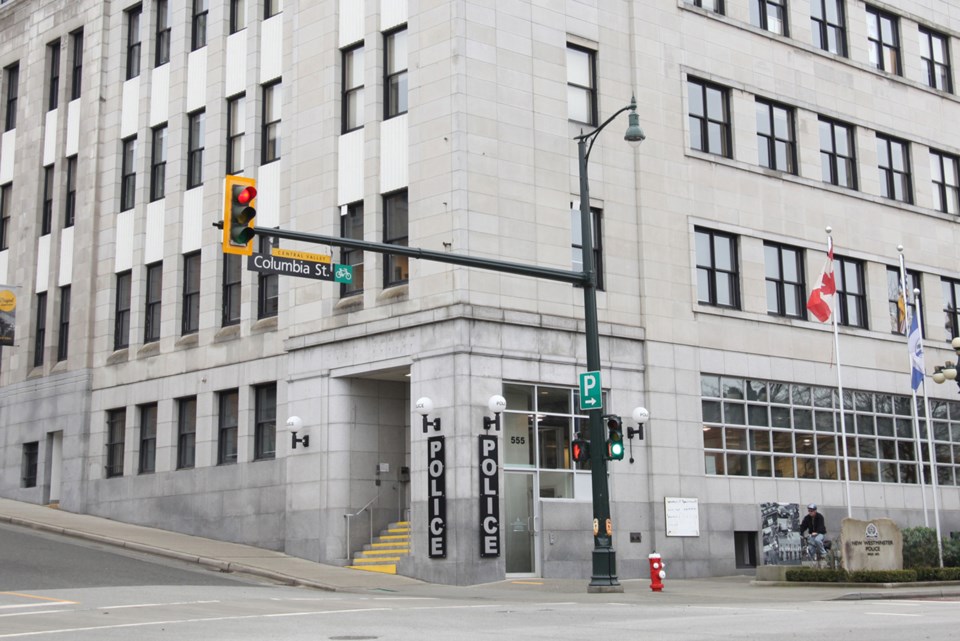The annual report released by the police complaint commissioner shows a rise in complaints against New Westminster police, but according to the department, if you break down the numbers, there's no rise at all.
According to the annual report for 2012/13 by the Office of the Police Complaint Commissioner, 63 complaint files were opened against the New Westminster Police Department between April 1, 2012 and March 31, 2013.
The complaint commissioner's report, however, combined both 2012 and 2013 complaints, rather than separating each year, as they've done in the past.
According to Staff Sgt. Paul Hyland, spokesperson for the New Westminster police, 31 complaint files were opened in 2012 and 32 in 2013. Of the files opened in 2012, Hyland said only 28 were registered complaints, meaning they were formal complaints.
But not all 28 complaints opened in 2012 were substantiated.
According to Hyland, only eight of the 28 registered complaints were deemed admissible by the complaint commissioner, while three required further investigation.
Last year's numbers were similar to those in 2012. Of the 32 files opened in 2013, only 11 were found to be admissible, six required an investigation and one was a reported injury review, Hyland explained.
Hyland says these numbers aren't surprising; in fact, he said they illustrate a decline in the number of substantiated complaints.
"This year's stats did not provide any surprises for the department. The eight-year average for "opened files" is just under 35 (34.75), so we are pleased that we are under this number for the last two years," Hyland said.
Across the province, nearly 40 per cent of the complaints that were reported in 2013 had no proof of misconduct, according to the complaint commissioner's 2013 year-in-review report.
The Office of the Police Complaint Commissioner first began tracking and investigating complaints against municipal police departments in 2010. Since then, there has been a steady rise in the number of complaints filed against departments across the province - including New Westminster.
"There has never been a time when the police were under more scrutiny," Hyland said. "We are accountable to the civilian based (complaint commissioner) when allegations of misconduct arise, the civilian based (Independent Investigations Office) when allegations of criminal behavior arise, the various levels of court when we submit charges, coroners inquests when our actions result in death directly or even indirectly, civil courts when people feel they have been wronged, not to mention the extensive media coverage we get when there is an allegation of police wrongdoing."
In addition to all this, police are at the mercy of everyday citizens thanks to technology, Hyland added.
"With all the advances in technology there is now a video camera in the hands of any citizen with a cell phone and that alone has provided a great level of additional scrutiny on the police," he said.
And it's not only residents and civilian branches of the government who are keeping a close eye on the conduct of officers. In New Westminster, the police department takes an active role in reporting the misconduct of its own members, Hyland said.
Of the 63 files opened in 2012 and 2013, nine of them were investigations ordered by the department in situations where there was reason to believe a member may have violated the Police Act.
"We believe that self-reporting is critical to maintaining organizational transparency as well as public trust. Again I would note that of those nine self-reported files, only three were substantiated after being thoroughly investigated," Hyland said.
By taking an active role in reporting problems within the department, a level of trust can exist between the public and police officers, which Hyland said is very important.
"The (police department) relies completely on the trust and cooperation of the public to do our jobs effectively. We are committed to ensuring that our members operate within the bounds of the law, with the utmost integrity, professionalism and respect. Anything short of this is not acceptable to our organization and we will ensure that on the very rare occasions that our members fall outside of this standard, they are held accountable, both to the organization, and to the public they serve," he said.



